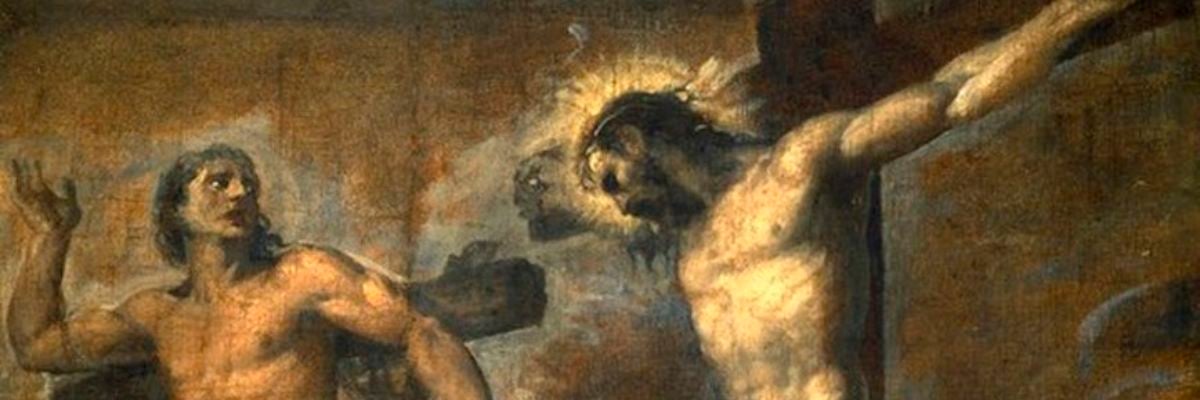
DAY 205
CHALLENGE
“Purgatory cannot exist because on the cross, Christ told the good thief, ‘Truly, I say to you, today you will be with me in Paradise’ (Luke 23:43).”
DEFENSE
This assumes that purgatory involves being separated from Jesus and that it takes time.
Purgatory may not involve being separated from Jesus but may be an encounter with Jesus.
Paul says our works will be tested by fire, and, if a man’s works are burned up, “he will suffer loss, though he himself will be saved, but only as through fire” (1 Cor. 3:15). Commenting on this, Benedict XVI stated:
Some recent theologians are of the opinion that the fire which both burns and saves is Christ himself, the Judge and Savior. The encounter with him is the decisive act of judgment. Before his gaze all falsehood melts away. This encounter with him, as it burns us, transforms and frees us, allowing us to become truly ourselves. All that we build during our lives can prove to be mere straw, pure bluster, and it collapses. Yet in the pain of this encounter, when the impurity and sickness of our lives become evident to us, there lies salvation. His gaze, the touch of his heart heals us through an undeniably painful transformation ‘as through fire.’ But it is a blessed pain, in which the holy power of his love sears through us like a flame, enabling us to become totally ourselves and thus totally of God (Spe Salvi 47).
How long would this take? According to Benedict XVI: “It is clear that we cannot calculate the ‘duration’ of this transforming burning in terms of the chronological measurements of this world. The transforming ‘moment’ of this encounter eludes earthly time-reckoning— it is the heart’s time” (ibid.).
God can transform a person as quickly as he chooses. Paul speaks of those on the last day being transformed “in the twinkling of an eye” (1 Cor. 15:52). The thief could die with Christ, be transformed by him “in the twinkling of an eye,” and be with him in paradise—all on Good Friday.
TIP
What Jesus meant by “today” is debatable. The punctuation marks are not in the original Greek, and “today” may refer to when Jesus gives the thief the assurance (“Truly, I say to you today”) rather than when he will be in paradise.



